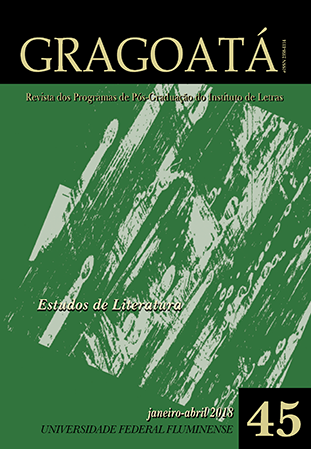Mateship and egalitarianism in Henry Lawson’s short stories
DOI:
https://doi.org/10.22409/gragoata.v23i45.33569Keywords:
Mateship. Egalitarianism. Henry Lawson. Australian short stories.Abstract
Mateship is an important element of the so-called “Australian Tradition” in literature. It consists of a particular bond between men who travel the rural areas known as “the bush” or “the outback”. This article examines some of Henry Lawson’s mateship stories, with a focus on the different connotations that the term can assume for the author, especially regarding the theme of egalitarianism. It considers how the Bulletin Magazine, which “discovered” Lawson and published many of his stories, had a role in fostering a special model of Australian democracy and a peculiar style for Australian literature. It also reflects on how the dissemination of Lawson’s stories through periodicals in the last decades of the 19th century helped create a feeling of what Benedict Anderson calls “nation-ness”.
---
Original in English.
---
Downloads
Downloads
Published
How to Cite
Issue
Section
License
Authors who publish in Gragoatá agree to the following terms:
The authors retain the rights and give the journal the right to the first publication, simultaneously subject to a Creative Commons license CC-BY-NC 4.0, which allows sharing by third parties with due mention to the author and the first publication by Gragoatá.
Authors may enter into additional and separate contractual arrangements for the non-exclusive distribution of the published version of the work (for example, posting it in an institutional repository or publishing it in a book), with recognition of its initial publication in Gragoatá.

Gragoatá is licensed under a Creative Commons - Attribution-NonCommercial 4.0 International.











